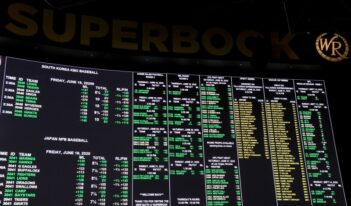
Loot boxes pose a regulatory challenge in the United States.
A U.S. federal court recently dismissed a class action lawsuit against Google over alleged “predatory practices” surrounding a gaming feature called “loot boxes” in the Google Play Store. Parents of minors had claimed that loot boxes constitute illegal “slot machines or devices” under California law.
The case reignited debate over whether buying loot boxes constitutes gambling. And even though the court dismissed the parents’ lawsuit, the precise legal status of loot boxes remains unclear.
Loot boxes are mystery boxes included in video games that users may purchase during the game using either real or virtual currency. Each loot box offers randomized surprise virtual items. Because users do not know which items they will obtain from the loot box until after they have made their purchase, some observers consider loot boxes a “game of chance.”
The parents who filed the lawsuit against Google claimed that the loot boxes enticed “consumers, including children, to engage in gambling and similar addictive conduct” and that the loot boxes have the “hallmarks of a Las Vegas-style slot machine, including the psychological aspects to encourage and create addiction.”
The court evaluated Google’s liability under the terms of Section 230 of the Communications Decency Act, which exempts platform companies from liability for content shared on their platforms. Although the court dismissed the lawsuit, it did so because Google merely allowed video game developers to provide apps to users through its app store. In other words, the court ruled against the parents not because it determined that loot boxes were not games of chance. Rather, it simply upheld the legal principle that a platform company “providing third parties with neutral tools to create web content is considered to be squarely within the protections of Section 230.”
Although there have been efforts in the United States to regulate loot boxes through legislation —and a Federal Trade Commission workshop raised the issue of loot box regulation—currently no legal consensus exists in the United States around the illegality of loot boxes.
Other jurisdictions, such as Japan, Belgium, and the Netherlands, have found that loot boxes fall under local gambling laws.
Japan was one of the first countries to respond to the global debate on loot box regulation. In 2012, Japan banned “kompu gacha,” a special type of loot box through which players can collect a final award if they collect a complete set of items from randomized loot boxes.
Notably, Japan regulates loot boxes under a law protecting consumers from deceptive practices, rather than under gambling regulations. The Japanese loot box regulatory framework differs from most Western frameworks that focus on the in-game monetary exchange.
Instead, Japanese lawmakers adopted a consumer welfare perspective that deemed kompu gacha exploitative in that the cost of completing a set of items from the loot boxes exceeded the value of the final award, with significantly lower payouts than those expected by gamers.
Because of this consumer welfare perspective, mechanisms similar to ordinary randomized loot boxes are not categorically prohibited; instead, the legality of loot boxes in Japan is determined on a case-by-case basis.
In Belgium, by contrast, certain types of loot boxes are explicitly included in the interpretation of the term, “games of chance.” They are deemed gambling within the meaning of the Gaming and Betting Act under which game developers may be criminally prosecuted.
Under this definition, the Belgium Gaming Commission found the constitutive elements of gambling present in loot boxes for certain games, such as when a wager serves as a participation fee for the loot box and a game design allows players to spend as much money as possible on the chance of receiving a certain item.
Such stringent regulations are a response to the addictive aftereffects caused by loot boxes and the vulnerability of minors and gambling addicts in game platforms. Accordingly, several game developers have altered their games offered in Belgium by removing in-game paid loot box systems.
Similarly, in the Netherlands, loot boxes qualify as a game of chance in which players can win a prize. But Dutch law differs from the definitions of games of chance in other jurisdictions in that it does not require a wager. Furthermore, the Dutch Gaming Authority left room for certain types of loot boxes that do not offer prizes that are transferable outside of the game; in these cases, the loot boxes are not deemed gambling but gaming.
Due to a lack of uniform regulations and the significant difference in gambling laws between European Union member states, the EU requires a country-specific approach.
U.S. lawmakers should consider the policy implications of the various jurisdictional approaches to loot box regulation. Policy debates about loot boxes should not be overlooked as scholars warn against the disconcerting structural and psychological semblance between gambling and loot box spending. Furthermore, the increase in video gaming during the COVID-19 pandemic has amplified such concerns and heightened the need for worldwide regulation.
U.S. regulatory authorities and policymakers should monitor trends and industry developments not only surrounding loot boxes but also around the broader issue of problematic game designs. In the interim, soft regulations may help tackle the problem by means of raising awareness and developing guidelines for parents and game players.
Although the United States has implemented various policies to safeguard the public, it is also a nation founded upon the pillars of liberty and freedom, which can pose a challenge to the adoption of certain legislation and regulation. Both liberty and the public interest should be adequately balanced to reach an optimal outcome concerning loot boxes in games.




